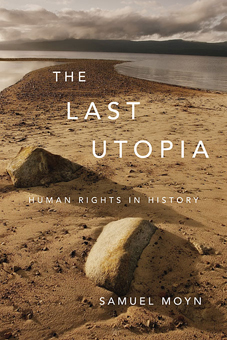What Rawls Hath Wrought
Mini Teaser: The human-rights movement is nothing more than an unattainable utopian dream used to justify moral ends through ruinous wars of intervention.
NO DOUBT human-rights advocates will argue that states in the rest of the world can gradually be raised to Western standards of government. At a time when wealth and power are moving quite rapidly from north and west to east and south (returning to a historical normalcy that prevailed until only a few centuries ago), the notion that Western governments can any longer act as moral tutors to the world has a delusional quality, but let that pass. The deeper truth is that the human-rights project is utopian everywhere—including the Western countries in which it is currently so deeply entrenched.
The core of the project is to place certain basic freedoms in a realm of constitutional law where they are beyond any possibility of political attack. But all the panoply of rights will not stop a government from violating the most basic protections when political elites—along with most people—support such encroachments, or simply do not care. Torture was prohibited in Austria-Hungary in 1776 by Maria Theresa, an absolute ruler. Over two hundred years later, it was rehabilitated for a time in the world’s preeminent constitutional democracy—the United States. If it is true that torture is once again prohibited, this is not because the barbaric practice has been legally challenged, but because of a political change.
The intrinsically utopian nature of the human-rights project lies in what its advocates most prize about their movement—its antipolitical orientation. Basic human freedoms do not form a harmonious system whose dictates can be decided by a court, as Rawls and the human-rights movement imagine; they are often at odds with one another—freedom of information with the freedom that goes with privacy, for example. The role of politics is to devise a modus vivendi among these rival liberties. At the back of the rights movement is a vision of an ideal constitution that could in principle be installed everywhere. But such a framework is impossible even in theory, for there are ethical and political conflicts that admit no single, right solution. If neo-Nazism could be countered in the countries where it is reemerging by curbs on free expression and political association, would it be wrong to impose such limits? The answer depends not on any imaginary “rights” but on the effectiveness of the restrictions. Where they have a decent chance of working, I for one would happily support them.
The human-rights project may have played a part in helping to frame a universal moral minimum—what Moyn, following the jurist Henry Steiner, describes as their “catastrophe prevention” role—despite the fact that, as Lemkin’s struggle to secure the convention against genocide shows, the two have not always gone together. The role of the rights movement as the vehicle for a covert type of utopian ideology and politics is more questionable. Of course, there can be no question of rolling back the ascendancy of rights. Though they cannot be relied on, the legal protections that go with these freedoms do impose some restraint on power. Where the human-rights project has become harmful is in nurturing the sickly dream of a time when the intractable dilemmas of ethics and politics will be overcome, transcended in an empire of law.
Human rights are not the last utopia—just the one we must presently live with. The pursuit of the impossible is too much a part of the modern Western tradition ever to be truly renounced. The idea that utopianism will disappear is itself a utopian dream. The most that can be hoped for is that the piety which surrounds human rights will be tempered from time to time with a little skeptical doubt. It is hard to think of a better start than Moyn’s seminal study.
John Gray is the author of Black Mass: Apocalyptic Religion and the Death of Utopia (Farrar, Straus and Giroux, 2007), which in 2008 received the Lannan Foundation Notable Book Award. His newest book, The Immortalization Commission, will be published in March 2011 by Farrar, Straus and Giroux.
Image: Essay Types: Book Review
Essay Types: Book Review 